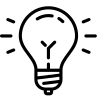Here's how we're helping women founders
We are a virtual incubator for early stage women entrepreneurs based in the U.S. and Canada. Halo was founded in 2018 as the first in-person, industry agnostic accelerator progam for women in NYC. In 2020, we transitioned to a fully virtual program, but we will resume in-person events across major cities in the US to bring together not only our alumni women founders but foster a community for women entrepreneurs to work together to solve for the underrepresentation of women in venture backed funding.
Our team is driven by the desire to exponentially increase the number of successful women-led companies and mobilizing the support of those who believe in them and the power of their ideas by working together to provide expertise, resources and support in fundraising.
Our 8-week incubator cohort meets twice a week virtually and works as a group and one-on-one with the startup founders to launch and help shape their current strategy, ultimately accelerating growth opportunities and optimizing the founders to raise money. We cover topics from refining go-to-market strategy and customer discovery, product design for non-technical founders, branding including PR, sales techniques for B2C and B2B, public speaking/pitching, building early stage teams to fundraising.
Some of the essentials that our cohort startups enjoy include:
Meeting twice per week to discuss your current progress, rehearse pitches, and bring in industry subject matter experts.
Public speaking and media training with our network of coaches.
Assistance with pitch decks, financial modeling, infrastructure, and team-building.
Discounted rates with accountants, lawyers, advertising/branding agencies, patent lawyers, and marketers who share a start-up mindset.
Free legal office hours with Goodwin Procter LLP.
Exclusive and private invitations to industry events that accelerate the time from idea to business success.
Collaborations with an extensive and growing list of mentors, which include startup founders, investors and industry experts.
Potential partnerships, affiliations, and investor opportunities drawn from our robust network.
Our programming is dynamic and tailored to fit the needs/goals of each cohort. Some of the topics that we consistently cover include:
Customer Insights & User Journeys
Who are your target customers? And what problems are they really looking to solve? By answering these questions, we help our founders identify a common language and a clearer understanding of their customer needs. We look at the different methods for understanding customers and then assist the founders in creating their own discovery materials. This information is then used to ideate on initial MVPs and how to introduce those MVPs to the marketplace.
SaaS Product Design
A seamless user experience is the key to creating a successful SaaS company. Most non-technical startup founders have never worked on a product team and have little context for the design and software decisions that power their companies. This session will introduce founders to the core principles of UX and Product Design and how to build talented product teams. Topics include UX and Product Design Processes and Best Practices, Common Design Challenges Facing SaaS products, How to Hire Great Designers and Structure Product Teams for Success.
Public Speaking
Each cohort includes two public speaking sessions with two different coaches. In the sessions, the founders present their short business pitches to the group and receive individual feedback from the coach. The coach then takes the group through common public speaking mistakes and a series of exercises to make them more articulate and comfortable in front of an audience. These exercises focus on body language, breathing, annunciation, and handling Q&As.
Brand Strategy
Inspired by the Customer Discovery session, this segment deep dives into how to develop an identifiable brand. The session emphasizes the visual aspects of branding (font, logo, digital presence) as well as the written (name, promo language, social posting style and tone). Additionally, we explore how to maintain a clear brand identity across social platforms and partnerships. Our goal is to give our founders an understanding of the branding process so that they are well-prepared to vet and collaborate with individual creatives and branding agencies.
Venture Capital and Fundraising
We conduct several lectures and ‘fireside chats’ on the topic of fundraising. A more formal lecture on VC 101 which covers basics of when, how and who to fundraise from. We educate founders on the type of information investors look for and how much they should look to raise and what valuation. We also have a separate session where we invite an angel investor or a VC who shares best practices, ‘insider secrets’, answers questions from the cohort including how to best pitch and approach investors.
Accounting, Finance, and Financial Modeling
This session provides founders with the building blocks to manage their initial finances and develop business projections. The accounting session focuses on preliminary book keeping and cash flow management. The finance component outlines how to build a unit model and then use that model to create forecasting and sales projections. We then walk the founders through how those models can help determine the amount of money they will need to raise.
HR/People
Employment contracts, freelancer agreements, recruiting 101 and other topics crucial to startup HR are covered in this session by a guest speaker with experience leading People Operations at growing companies.
Sales
The Sales Kit workshop provides our founders with building blocks of a strategic sales process. From there, we overview various sales tracking tools (SalesForce, SalesHub) and how to maintain a strong sales pipeline.
Legal 101
With MVPs in development and/or in market, it is crucial that our founders have a solid understanding of the legal needs of their businesses. This session focuses on creating legal entities (C-corp, S-corp, LLC), drafting team and partnership agreements, copyrights and trademarks, IP, term sheets, and taxes.
PR
Strong PR helps amplify a brand’s message while supporting its sales and marketing. We use this session to overview the many ways that a startup can find free PR opportunities and how to create PR outreach packages.
Social Media Marketing
This session covers best practices for the social platforms that are the most relevant to the founders’ needs while also digging into when and how a startup should pay for marketing. Paid marketing topics include influencers, media spend, and SEO.












